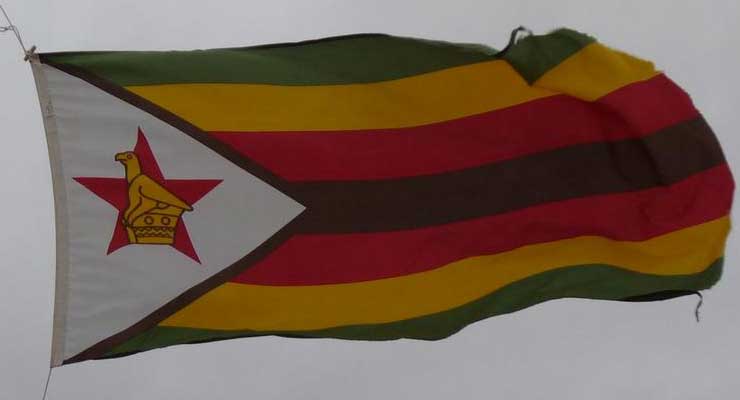
Who funds Zimbabwe’s political parties and independent candidates? The answer has always been shrouded in secrecy both before and post-1980 when the country became a constitutional democracy. Zimbabwe is one of very few democracies in the world that don’t register political parties and regulate private funding of political parties and candidates. Most countries have laws that make it mandatory for parties and candidates to register with the Electoral Commission and further disclose the source of funding.
All ten of the largest democracies in the world have disclosure laws. In Africa leading economies that include Kenya, Nigeria and South Africa now have disclosure laws. Legislation to control private funding in Zimbabwe is long overdue for reasons that I set out herein: Firstly, its absence opens the door to “State Capture” and secondly, citizens need to know who is oiling the politics of the day. The country does have some regulation around public funding, including the Political Parties Finance Act, a law passed in 2001 that outlaws foreign funding for political parties and governs how treasury should distribute state funds to political parties that manage to garner at least 5 percent of the total vote at general elections. But, worldwide, it’s the secrecy of private donors that creates the most controversy. This is because parties typically spend much more private than public money during the election.
The influence of big corporations and rich individuals in financing political parties and candidates has led to accusations of “State Capture”. Of course, when these wealthy corporations and individuals invest in an election, they expect their interests to be protected. For example, in South Africa accusation of “State Capture” by the rich Gupta family is currently a subject of a commission of inquiry by the Zondo Commission.
In Zimbabwe funding of presidential campaigns by corporate interests and wealthy individuals is often hidden in pledges disguised as corporate social responsibility (CSR) or contributions through participating at fundraising dinners. The CSR and fundraising dinner theatrics can raise unlimited sums of money from private companies, state-owned entities, associations and individuals. Since my 2017 article: “Fixing Political Party Funding For Transparency and Accountability”, a lot of things have changed. In fact, politics has changed dramatically over the last decade, and our laws and regulators have not kept up in most African countries.
Today, tens of millions of people can be reached instantly at the click of a button. In Zimbabwe’s 2018 general elections the ruling ZANU-PF party and main opposition MDC Alliance campaign groups spent vast sums of money targeting voters. Apart from the tax dollars they receive through the Political Parties Finance Act of 2001 for any political party that gets at least 5 percent of the total vote, it is vital that we know who else is funding our politics. We cannot let anonymous donors and private companies hold sway over the important decisions whether on budget allocation, climate change debate or foreign policy that affect our lives.
The 2018 International IDEA Political Finance Database reveals that several shortcomings still exist in African countries’ political finance laws and regulations. For example, while it is important to include both political parties and candidates within the scope of political finance disclosure, laws and regulations concerning candidates are missing in many African countries. Similarly, political finance disclosure by political parties in Africa is an average of 43 percent, lower than Europe (93 percent), Asia (60 percent) and the Americas (56 percent).
In order to address these challenges, it is encouraging that some African countries have recently initiated political finance reform debates. For example, there was no specific provision in the law that regulates private funding and requires its disclosure in South Africa. However, the situation changed. The Political Party Funding Act of 2019, enacted a few months before the May 2019 general elections was a welcome development that improved accountability and transparency in political finance in South Africa.
Political finance laws and regulations are also relatively comprehensive in Kenya and Nigeria. Research shows that such laws are not always enforced, opening doors for corruption and ultimately “State Capture” risks. The recent Kenya 2017 general elections and Nigeria’s February 2019 presidential election campaign featured anti-corruption as one of the priority campaign issues. Kenya and Nigeria could consider making further efforts to ensure effective implementation of its political finance laws and regulations.
In Zimbabwe, we could have another election or referendum at any moment, and we badly need an overhaul of the whole system. But there’s one thing that cabinet ministers and parliament can do quickly, and now.
The Zimbabwe Electoral Commission (ZEC) can be empowered to register political parties and regulate political party and candidates funding and enforce a maximum fine that could deter cheating or non-disclosure.
Today, we are asking justice and parliamentary affairs minister Ziyambi Ziyambi to give the Electoral Commission the teeth it needs to guard our democracy. We want them to begin processes of consulting widely before submitting to parliament the proposed amendment to the Constitution, Political Parties Finance Act, Electoral Act and regulations to make it mandatory for political parties to register with the Electoral Commission and for political parties and candidates to disclose funding and to make fines proportionate to how much campaigns actually spend, so they act as a real deterrent.
I believe that all political organizations should be properly regulated for the health of our democracy.
To do that, the Electoral Commission must have the resources and powers necessary to thoroughly investigate and stop non-disclosure.
Leave a Reply